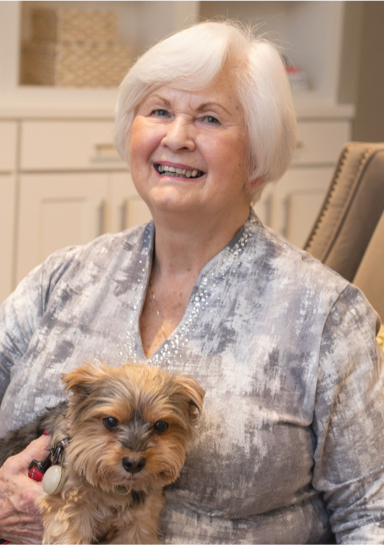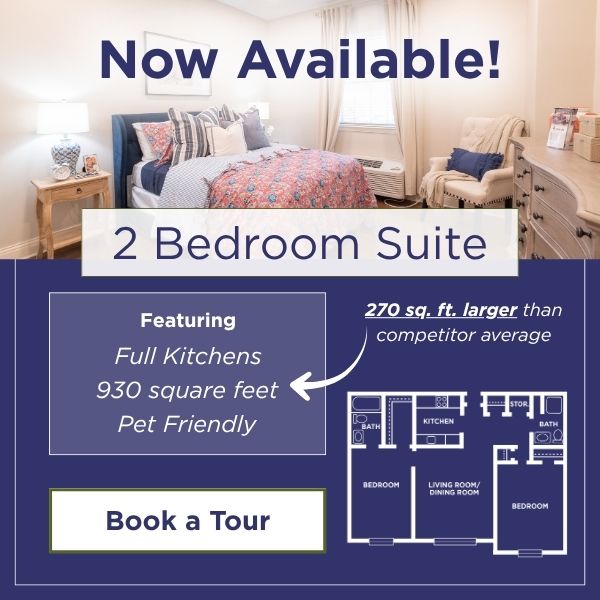Many of us face the challenge of finding the perfect match for our family members among all the options out there. Each lifestyle is designed to create a cozy home where your loved one can feel welcome and cared for, but choosing the right one is important.
Assisted living provides general support with daily activities, while memory care focuses on specific needs related to memory issues. Understanding these lifestyles is the first step to helping your loved one receive the compassionate care they deserve.
What Is Assisted Living?
Assisted living communities are great places for seniors who need a bit of help with daily tasks but still want to enjoy their independence.
These communities offer support with things like preparing meals, cleaning, and managing medications, all while encouraging residents to join in social activities and have fun. They’re perfect for seniors who need some assistance with daily activities without the need for intensive medical care.
Plus, there are various living options available, from private apartments to shared spaces, so residents can choose what suits them best.
What Is Memory Care?
Memory care is a special type of long-term care focused on supporting people with Alzheimer’s, dementia, or other memory-related issues. These environments offer 24-hour care in a safe and secure setting, helping everyone feel safe while encouraging a community feel.
The staff are specially trained to communicate and connect with residents, providing support that matches their unique needs. The goal is to create a friendly environment with activities that help keep skills sharp and reduce confusion.
Key Differences Between Assisted Living & Memory Care
Choosing between assisted living and memory care for a loved one can be a tough decision, but understanding the differences can help. Assisted living is great for seniors who need help with daily activities like bathing, dressing, and eating. Memory care is a better fit for those dealing with memory issues, as it offers programs that focus on keeping the mind active and providing emotional support.
It’s important to note that a lot of the amenities residents enjoy are shared between these lifestyles. Assisted living residents can still get the emotional support and brain exercises that memory care residents do, and memory care residents get help with housekeeping and meals if they need it. The differences come down to the level of care your loved one requires.
Another major difference is staff training. Assisted living staff are skilled in helping with everyday tasks and basic medical care, but memory care staff receive extra training. They’re equipped to handle the unique challenges of memory impairments and work to create a supportive environment.
The design of the communities also sets them apart. Memory care neighborhoods are often laid out to be secure and easy to navigate, with clear signs to help reduce confusion. These areas encourage social interaction and may use lighting and colors to maintain a calming atmosphere.

Choosing the Right Option
Choosing the right care option for a loved one can make a big difference in their quality of life. It’s important to look at their current needs and think about how these might change over time. For someone with mild cognitive decline, assisted living might work well at first, but memory care could become necessary as things progress.
Consider what your loved one enjoys and their daily routine. If they love being social and participating in group activities, look for a place that encourages social engagement. Involving them in the decision-making process, when possible, can also help them feel more comfortable and happy with the choice.
Here are some tips for when you’re looking for the right community:
- Visit each option in person
- Take time to observe the environment and how the staff interacts with residents
- Chat with the caregivers and ask about their training, especially if you’re considering memory care.
- Check out the activities and programs they offer to see if they match your loved one’s interests.
- Make sure the community has good security measures in place, particularly in memory care neighborhoods, to keep your loved one safe.
- Notice how clean and welcoming the place feels, and pay attention to how the residents seem during your visit.
- Trust your gut—choose a place where you feel confident your loved one will get the kind and caring treatment they deserve.
Don’t hesitate to ask friends, family, or healthcare professionals for recommendations; they might have helpful insights from their own experiences. Online reviews and ratings can also give you a better idea of the quality of care in different communities.
Welcoming Care for All Lifestyles
Exploring senior care options doesn’t have to feel overwhelming. By learning about assisted living and memory care, and considering your loved one’s specific needs, you’re already making the important strides you need to make to support their happiness and well-being.You’re showing how you care, let our team at Heatherwood show you how we care too. Book a tour with us, and together, we’ll craft a care plan that brings peace of mind to your family.














